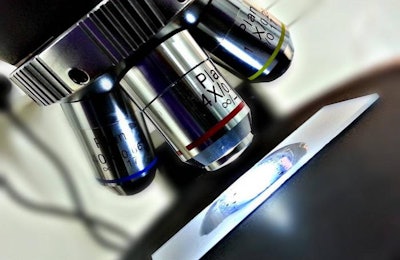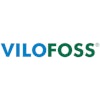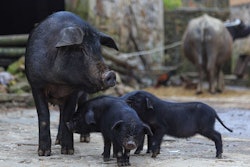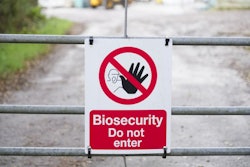
Vaccine may be best chance at keeping African swine fever out of North America, top Canadian official says
To keep African swine fever (ASF) out of North America, a group of Canadian researchers plans to bring the virus to their home base.
This month, the Canadian Food Inspection Agency (CFIA) cleared the Infectious Disease Organization-International Vaccine Center (VIDO-InterVac) at the University of Saskatchewan to work with African swine fever on-site, making it the first non-government facility in Canada to work with the virus. By increasing the number of laboratories allowed to work directly with the virus, CFIA officials hope to expedite the development of an effective vaccine for the disease — a tool they believe is essential to halting the spread of the virus.
“If we have a vaccine, and can provide that to the countries that have the virus right now, it will minimize the virus in those countries, thereby reducing the possibility of it traveling to other countries,” said Dr. Jaspinder Komal, chief veterinary officer of Canada. Or, if the virus spreads to North America, he said, an effective vaccine would enable officials to contain and eventually eradicate the currently incurable disease.
Lab’s expertise in vaccine development
While there are already government laboratories researching ASF in Canada, VIDO-InterVac has specific expertise in vaccine development, Komal said. Developing a vaccine for ASF has proven particularly difficult due to the size and complexity of the virus. Traditional vaccine development techniques have yielded products that, although available elsewhere in the world, are not entirely effective and may even sicken pigs or cause otherwise healthy animals to become contagious.
“Given the nature of the expertise in this lab on other vaccines, we thought his would be a good facility in North America to help us find a solution,” Komal said. “There is some progress already made on some gene-deleted vaccines. … Our hope is this will accelerate the next steps in finding the antigenic properties of the virus and produce an efficacious vaccine.”
In the meantime, Canada has collaborated with public and private researchers in the United States and even Mexico to search for other solutions, particularly with an eye toward increasing the speed with which African swine fever is diagnosed.
This partnership has yielded a technology that can effectively detect the presence of the virus using blood samples within two hours, Komal said. The test has been field-tested in Vietnam, he said, and the Canadian government is now looking for private partners to help mass-produce the test kits for commercial sale.
But while the test kits could be available in a matter of months, a viable vaccine is likely still five years out, Komal said. And that, he said, means Canada and its international partners must maintain their level of heightened awareness to keep ASF out of North America.
“If we focus on things in the current environment for a few days, the people tend to forget,” he said. “So that’s our challenge — to keep it on the forefront so people don’t forget the risk of bringing this disease to North America.”
View our continuing coverage of the African swine fever outbreak.

















